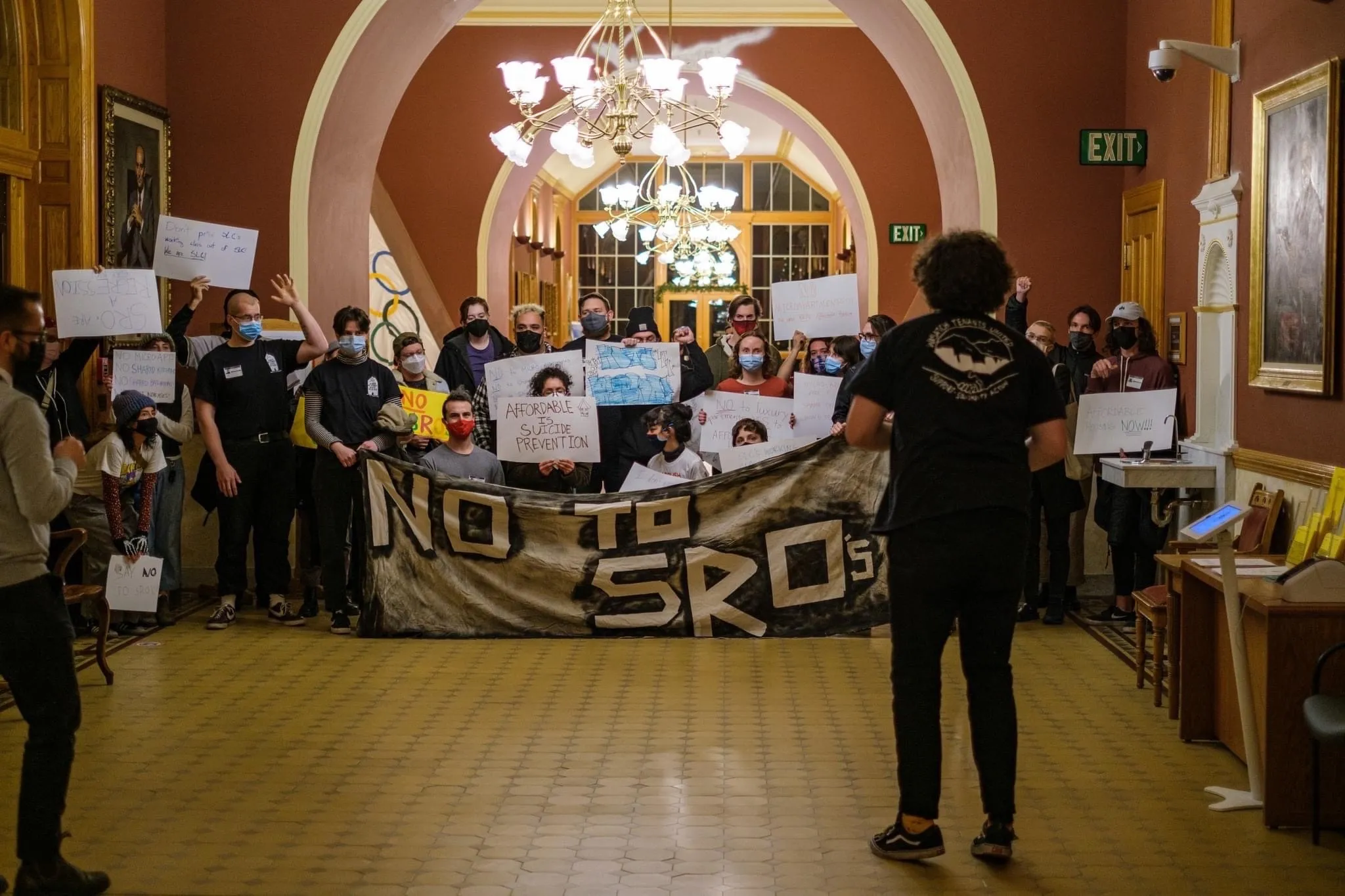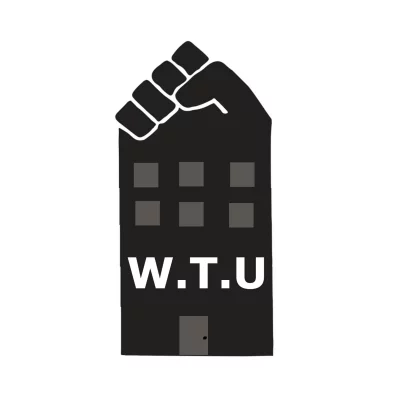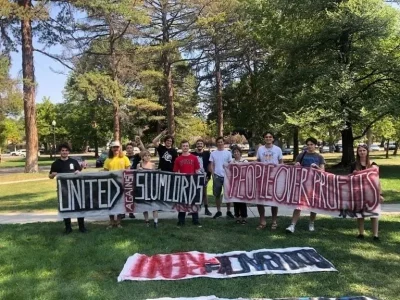
People Over Property: Wasatch Tenants United Shows the Political Power of Community
Activism, Outreach and Education

In an era of skyrocketing rent prices and a wealth gap growing wider by the day, it’s easy to let hopelessness lead to isolation. Wasatch Tenants United (WTU), a grassroots, volunteer-run organization advocating for dignified housing for all, exists to stop this pattern of discouragement in its tracks. Long-time organizer Newlin, who prefers to go by his last name only, defines the group as, simply, “an organization of volunteers, of tenants, just trying to help each other out.” As one of their core beliefs, WTU asserts that housing is a human right that should be decommodifed.
In WTU’s approximately five-year history, members have successfully organized Salt Lake City Council pack-ins, marches and rallies. According to Newlin, who has been a WTU organizer for the last two years, such demonstrations were “really, really successful.” He goes on to say that the organization “put a ton of pressure on the city for a very long time, but at the end of the day, it never changed [the city’s] mind on anything because they have the developer’s interests at heart way more than [the] tenant’s interests.” Fellow organizer Jameson, who requested to be identified only by first name, agrees that “the city doesn’t do much in the first place” and is concerned that focusing on government interaction only gives the city power to continue ignoring the demands of the working-class public. For this reason, WTU has been re-evaluating their approach.
“Tenant law is purposefully vague, but what’s not vague is going down three flights of stairs.”
WTU’s primary focus right now is on building community and fostering trusting relationships among tenants. “We don’t want to be shouting at the city council anymore. What we want to be focused on right now is building up membership among tenants [so they can] organize themselves to fight back against landlords directly,” explains Newlin. Sparking real change on a city level is, of course, still the end goal, but the current organizers believe that this can only successfully occur when there is a strong, well-organized community of support to build upon.

As an organizing tactic, Jameson is in favor of “emphasiz[ing] the relationships you already have.” He explains that “tenant law is purposefully vague, but what’s not vague is going down three flights of stairs” to connect with neighbors and fellow tenants who likely share your concerns. WTU organizers have conducted door-knocking sessions in buildings all over Salt Lake City to encourage tenants to learn from and connect with each other. In some cases, the community power that comes from a single session has been enough for a building’s management to make changes. “When you build power in the hands of people to take care of things themselves, they learn that the big shots aren’t all that big after all,” says Newlin.
“When you’re by yourself, everything is stacked against you, but when you’ve got a whole union backing you up, things start to swing in your favor.”
In addition to door-knocking sessions, WTU hosts political education workshops and events, where some of their best ideas come to light. Growing this community built upon shared experience and two-way trust through face-to-face interactions is the most powerful part of the work WTU does. Connecting with fellow tenants through WTU gives people a “contact for who you can call if something goes down in your building and [the knowledge] that all the other tenants have your back, not just in your building,” Newlin says.
Anyone can get involved with WTU, as long as they have tenants’ and working-class people’s best interests in mind. There is no limit to how much or how little a member can or should participate, but the group’s non-hierarchical democracy and community-building focus is essential. “Reach out and get involved and great things can happen,” Newlin says. “When you’re by yourself, everything is stacked against you, but when you’ve got a whole union backing you up, things start to swing in your favor.”
Get involved with WTU and learn how to organize your neighbors at wasatchtenantsunited.org or follow them on Instagram @wasatchtenants.
Read more on the housing problem in the state of Utah:
DesignBuildBLUFF: Collaborative Homebuilding in The Navajo Nation
Unsheltered Utah: Surviving The Moratorium
